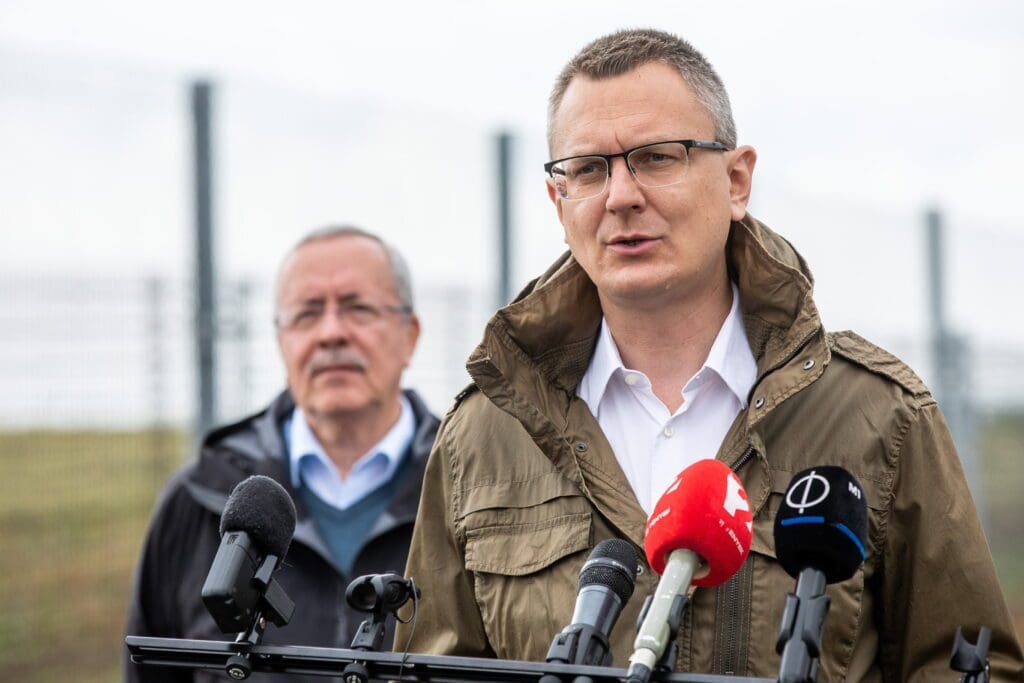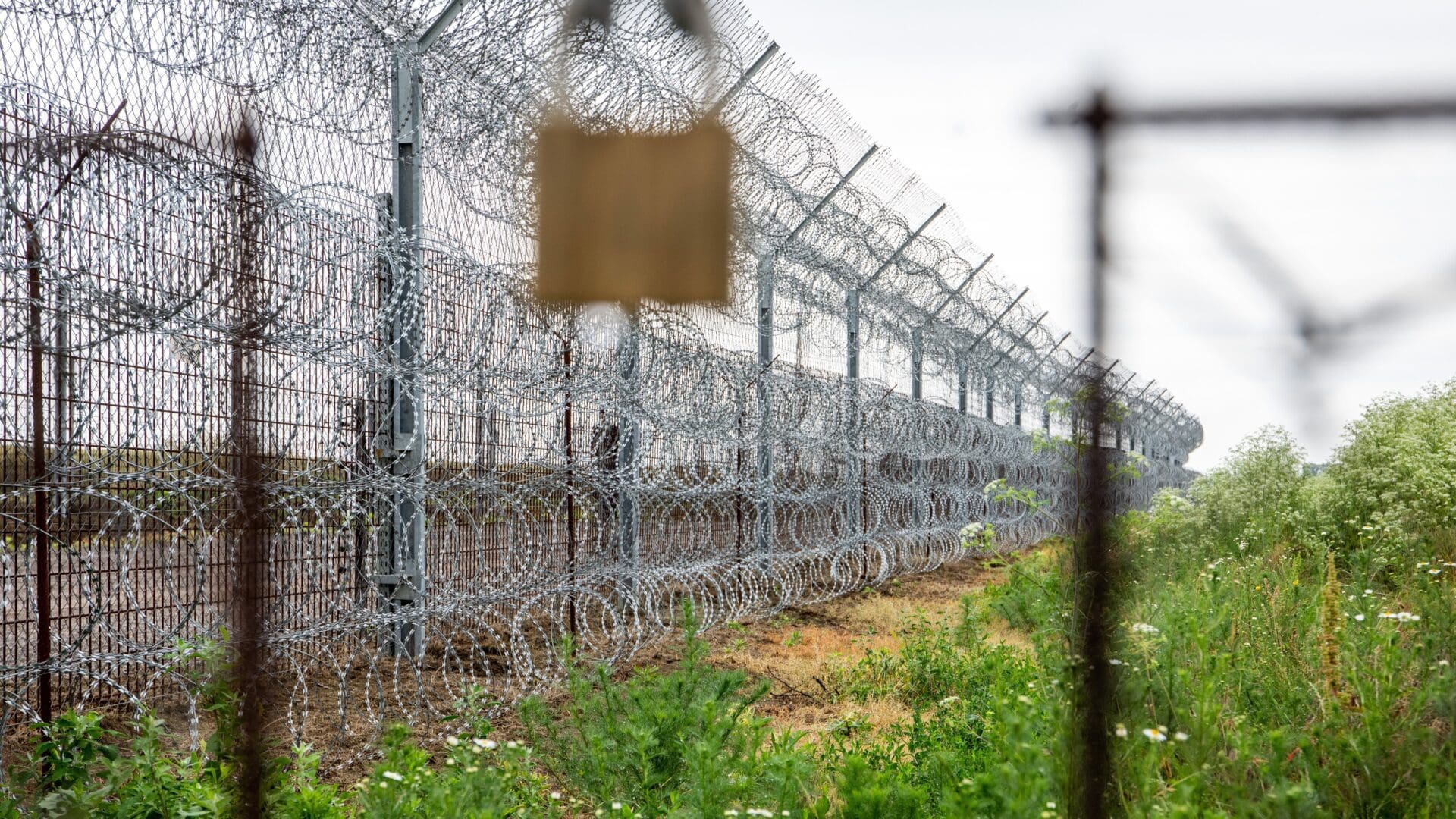The reinforcement and expansion of the southern border fence have been completed, Parliamentary State Secretary of the Ministry of Interior Bence Rétvári announced in Röszke on Tuesday.
At a press conference held at the border, Bence Rétvári stated that Hungary has spent 650 billion Hungarian forints on the defence of the southern border, the construction and reinforcement of the border fence, and its continuous protection. Although Hungary is guarding the common border of the European Union,
the EU essentially does not contribute to the costs of border protection,
as only one per cent of the expenses has been reimbursed.
The 165-kilometer border fence has been extended by about 10 kilometres near Hercegszántó, where there used to be fewer illegal border crossings given that it is a marshy area, but human smugglers have found this route as well during the summer, as stated by the state secretary.
The reinforcement of the border fence was carried out by the Hungarian Prison service, and the aim of the works was to make it more difficult and slower for border violators to cross, Bence Rétvári explained. He reminded that all European countries enjoy the benefits of the reinforced fence.
Despite the fact that there is a difficult-to-overcome, continually guarded fence on Hungary’s southern border, thousands of people still attempt to cross illegally into the country.

Illegal migrants constantly appear at the border armed with knives, blades, and in recent months, there have been cases of individuals arriving with tear gas sprays. It happens that migrants, who have been extensively trained by human rights organisations, use their mobile phones to record police actions so that later they can file complaints against law enforcement officers, Bence Rétvári highlighted. He emphasised that despite numerous procedures initiated by the European Commission, Hungary
continues to guard the southern border with the same determination as before,
returning those who enter illegally, arresting human smugglers, and bringing them to court.
As a consequence, more than two thousand human smugglers have ended up in Hungarian prisons, receiving severe and long-term sentences. However, in the past, there was a year when due to prison overcrowding, Hungary faced 13,000 lawsuits and claims for more than 2.5 billion Hungarian forints in compensation. There was a risk that Hungarian prisons would become overcrowded again due to convicted human smugglers, explained the politician. Therefore, the government decided that legally convicted and deported foreign human smugglers
must leave Hungary within 72 hours after serving a significant part of their prison terms.
For the 808 detainees, this does not mean the cancellation of their sentence, on the contrary: should they return to the country, they will have to continue serving their prison term, the state secretary explained.
György Bakondi, the Chief Security Advisor to the Prime Minister, informed that this year, more than 55,000 border violators have been apprehended, averaging 350 per day. Since 2015, this number has exceeded 965,000. Migrants continue to exert pressure on the Hungarian-Serbian border, and there has been an increase in activity at the Romanian border, as well as in Serbia, Bosnia and Herzegovina, Croatia, and Slovenia, Bakondi pointed out.
Border violators now exclusively arrive with the help of human smugglers. This year, 448 human smugglers have been arrested, mostly young men between 18 and 34 years old. The human smugglers have become organised, with each group controlling a specific area on the Serbian side, collecting money for passage, and armed conflicts among competitors are not uncommon, according to the Chief Advisor. Hungarian and Serbian police conduct joint patrol activities on both sides of the border, and Hungary also assists in protecting the Serbian-North Macedonian border, General Bakondi reminded.
Last year, there were 304 attacks on border patrols, vehicles, and the border fence. In 97 cases, gunfire was heard from the Serbian side. This year, there have been 56 attacks and 13 shots were fired.







